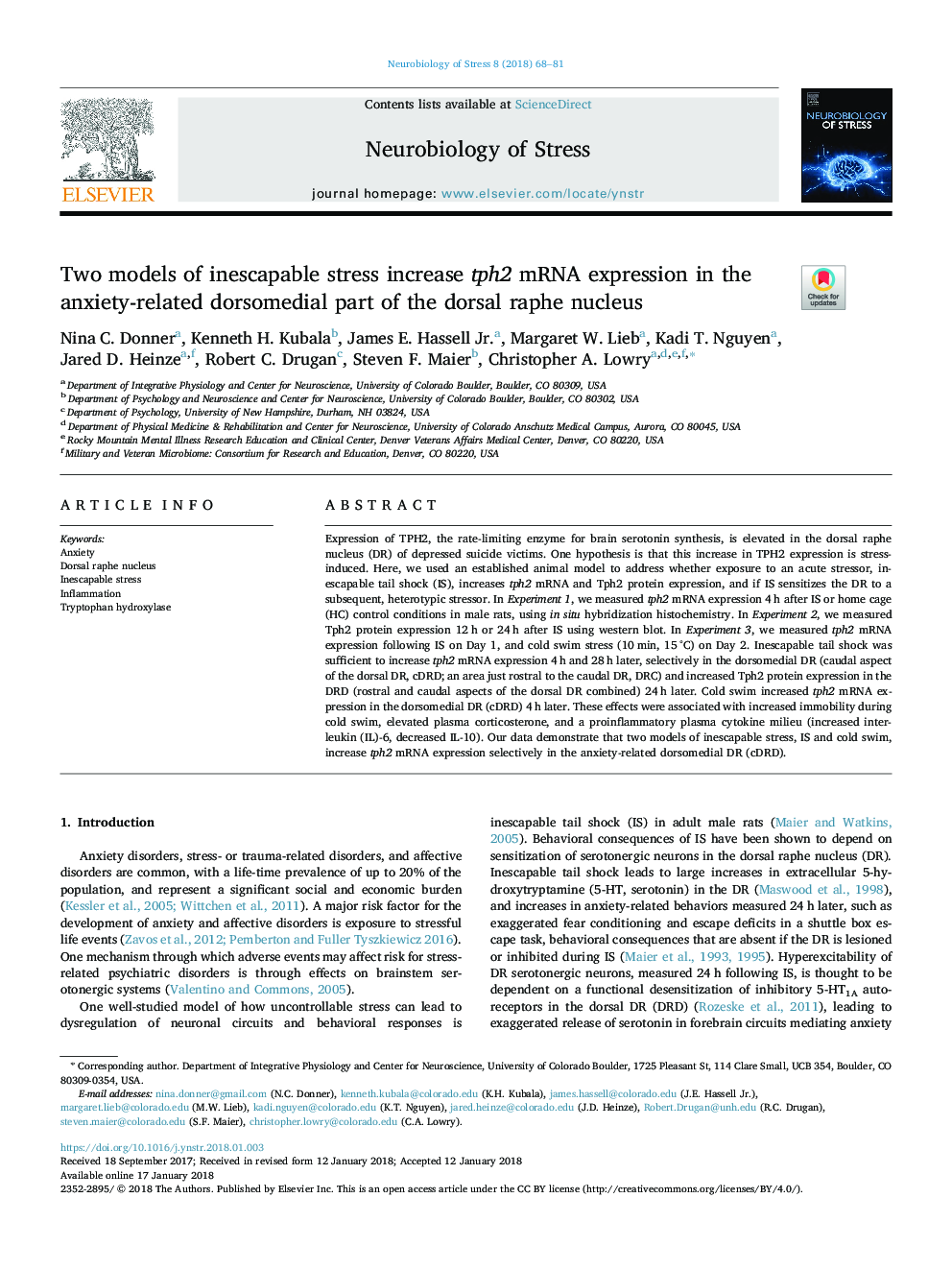| Article ID | Journal | Published Year | Pages | File Type |
|---|---|---|---|---|
| 8838725 | Neurobiology of Stress | 2018 | 14 Pages |
Abstract
Expression of TPH2, the rate-limiting enzyme for brain serotonin synthesis, is elevated in the dorsal raphe nucleus (DR) of depressed suicide victims. One hypothesis is that this increase in TPH2 expression is stress-induced. Here, we used an established animal model to address whether exposure to an acute stressor, inescapable tail shock (IS), increases tph2 mRNA and Tph2 protein expression, and if IS sensitizes the DR to a subsequent, heterotypic stressor. In Experiment 1, we measured tph2 mRNA expression 4â¯h after IS or home cage (HC) control conditions in male rats, using in situ hybridization histochemistry. In Experiment 2, we measured Tph2 protein expression 12â¯h or 24â¯h after IS using western blot. In Experiment 3, we measured tph2 mRNA expression following IS on Day 1, and cold swim stress (10â¯min, 15â¯Â°C) on Day 2. Inescapable tail shock was sufficient to increase tph2 mRNA expression 4â¯h and 28â¯h later, selectively in the dorsomedial DR (caudal aspect of the dorsal DR, cDRD; an area just rostral to the caudal DR, DRC) and increased Tph2 protein expression in the DRD (rostral and caudal aspects of the dorsal DR combined) 24â¯h later. Cold swim increased tph2 mRNA expression in the dorsomedial DR (cDRD) 4â¯h later. These effects were associated with increased immobility during cold swim, elevated plasma corticosterone, and a proinflammatory plasma cytokine milieu (increased interleukin (IL)-6, decreased IL-10). Our data demonstrate that two models of inescapable stress, IS and cold swim, increase tph2 mRNA expression selectively in the anxiety-related dorsomedial DR (cDRD).
Related Topics
Life Sciences
Neuroscience
Behavioral Neuroscience
Authors
Nina C. Donner, Kenneth H. Kubala, James E. Hassell Jr., Margaret W. Lieb, Kadi T. Nguyen, Jared D. Heinze, Robert C. Drugan, Steven F. Maier, Christopher A. Lowry,
